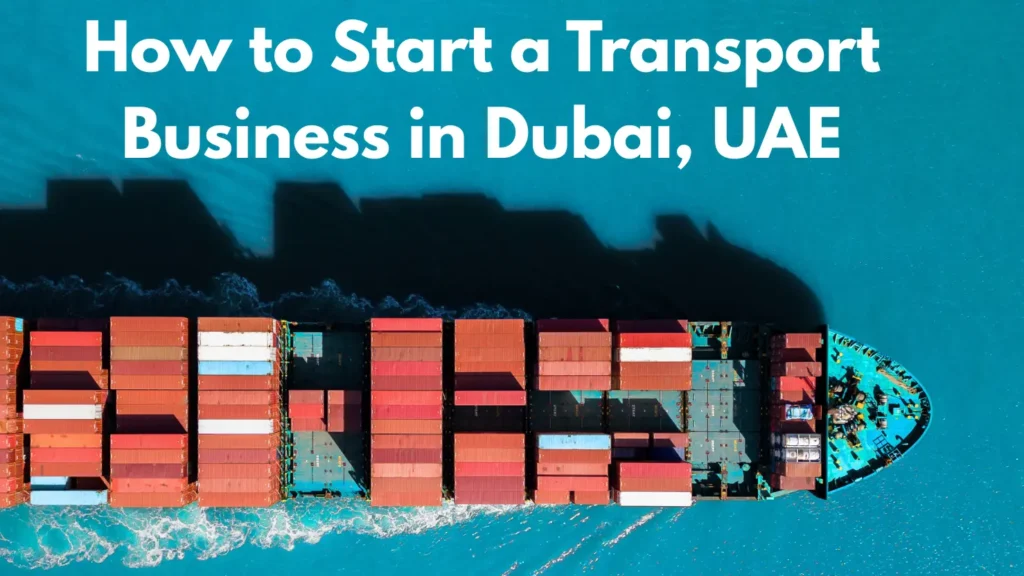How to Start a Transport Business in Dubai, UAE
Introduction
Dubai is one of the fastest-growing business hubs in the world, with unmatched connectivity, infrastructure, and investment opportunities. The city’s transport and logistics sector is booming, making it an ideal destination for entrepreneurs who want to launch a transport business in Dubai, UAE.
At Almalia Consulting, we understand that setting up a business in Dubai can seem complex, especially in a regulated sector like transport. From licensing and approvals to vehicle registration and compliance, our team ensures that every step of your journey is smooth, efficient, and legally compliant. Whether your vision is a logistics company, passenger transport service, or vehicle leasing business, we provide end-to-end support so you can focus on growing your enterprise.
1. Understanding Dubai’s Transport Sector
Before you invest in a transport business, it’s crucial to understand the different segments and opportunities within the Dubai market. The city offers various transport services, including:
Freight and logistics: Moving goods locally or internationally.
Passenger services: Taxis, buses, and private shuttles.
Courier and delivery: Small package or e-commerce deliveries.
Heavy goods transport: Construction and industrial equipment.
Vehicle leasing and rental: Cars, trucks, and specialty vehicles.
Each category has its specific regulations and licensing requirements under the Roads and Transport Authority (RTA) and the Department of Economy and Tourism (DET). By understanding the sector, you can identify which niche aligns with your goals and investment capacity.
2. Choosing the Right Business Structure
Selecting the correct business structure is essential for your transport business in Dubai. You generally have two options:
Mainland Business Setup: Ideal if you want to operate across Dubai and the UAE, serve local clients, or bid for government contracts. Mainland companies require a trade license from the DET and allow flexible business operations within the city.
Free Zone Business Setup: Suitable for companies focusing on imports, exports, or international trade. Free zones offer benefits such as 100% ownership, zero corporate tax for specific periods, and simplified setup procedures.
At Almalia Consulting, we carefully analyze your business model and objectives to recommend the best structure for your transport company. We ensure that you not only comply with regulations but also maximize operational efficiency and cost-effectiveness.
3. Obtaining the Necessary Trade License
Obtaining the correct trade license is one of the most critical steps in starting a transport business in Dubai. The type of license depends on the type of transport services you intend to offer. For example, passenger transport, cargo logistics, or vehicle leasing all require different approvals.
Key documents needed include:
Passport copies of shareholders and managers
Completed business plan outlining operations
Tenancy contract (Ejari) for your office or warehouse
Initial approval from the RTA or relevant authority
At Almalia Consulting, we handle the entire licensing process on your behalf. This includes preparing documents, submitting applications, following up with authorities, and ensuring your license is issued without delays.
4. Vehicle Registration and Hiring Drivers
Once your trade license is approved, the next step is registering your fleet and hiring drivers. Vehicles must be insured, maintained in accordance with UAE regulations, and registered under your company’s name. Drivers must hold valid UAE driving permits suitable for the type of vehicle they operate.
We guide our clients through every aspect of vehicle registration, commercial insurance, and driver onboarding. This ensures that your transport business is fully compliant from day one, avoiding potential fines or operational delays.
5. Complying with Safety and Operational Standards
Safety and operational compliance are non-negotiable in Dubai’s transport sector. Businesses must follow:
RTA vehicle safety inspections
Driver background and licensing checks
Insurance coverage and renewal schedules
Road safety and operational regulations

